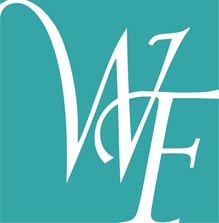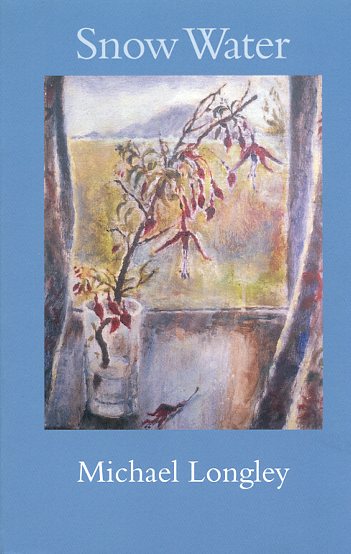Breaking News
$10.95 – $18.95
Few poets can alter readers’ orientation as radically as does Ciaran Carson in Breaking News. This former master of the long line employs two- and three-syllable lines to alter tempo, the time of his narrative, and the distinction between separate wars and eras. The imperial past, which haunts Belfast in its Crimean place-names, its violence, and its scissorblade meeting of different cultures, bleeds into the present:
Belfast
is many
places then
as now
all lie
in ruins
and
it is
as much
as I can do
to save
even one
from oblivion
(“Exile”)
In many of these poems, Carson brings a visual and tactile present of smell, sound, and taste through various forms. For example, he uses radical revisions of paintings, other poems, and bulletins of a war correspondent “to accommodate rhyme and rhythm,” as he says in his notes. Carson posts Breaking News, as Pound says of poetry, to show “news that stays news.”
Winner of the 2003 Forward Prize for Best Poetry Collection
Reviews
“. . . Carson displays a constant, playful inventiveness in discovering new ways in which the rhythms of spoken and written (journalistic) language can come to be perceived as poetry.”
– Poetry Review
“Breaking News is an important installment in the divine comedy that Carson is writing of Belfast. In engaging the beginnings of empire . . . it is also an important contribution to the linguistic forces that have not only shaped Belfast, but much of the globe that continues to wrestle with the inheritance of empire.”
– David Gardner, Irish Literary Supplement
“Carson is influenced in Breaking News . . . by the evocative prose of pioneering journalist William Howard Russell, described in a note as ‘the father of the art of war correspondence.’ Assigned by the Times of London to cover the Crimean War during the 1850s, the Irish-born Russell (1820–1907) went on to report of many of the notable conflicts of the nineteenth century, including the Indian Mutiny, the American Civil War, the Austro-Prussian War, and the Zulu rebellion. Particularly riveted by his dispatches from Crimea and India (conflicts, driven, of course, by the juggernaut of British imperialism), Carson admits to mining Russell’s writings for found poems: ‘in many instances I have taken his words verbatim, or have changed them only slightly to accommodate rhyme and rhythm.’”
– Thomas O’Grady, Harvard Review
Description
Few poets can alter readers’ orientation as radically as does Ciaran Carson in Breaking News. This former master of the long line employs two- and three-syllable lines to alter tempo, the time of his narrative, and the distinction between separate wars and eras. The imperial past, which haunts Belfast in its Crimean place-names, its violence, and its scissorblade meeting of different cultures, bleeds into the present:
Belfast
is many
places then
as now
all lie
in ruins
and
it is
as much
as I can do
to save
even one
from oblivion
(“Exile”)
In many of these poems, Carson brings a visual and tactile present of smell, sound, and taste through various forms. For example, he uses radical revisions of paintings, other poems, and bulletins of a war correspondent “to accommodate rhyme and rhythm,” as he says in his notes. Carson posts Breaking News, as Pound says of poetry, to show “news that stays news.”
Winner of the 2003 Forward Prize for Best Poetry Collection
Reviews
“. . . Carson displays a constant, playful inventiveness in discovering new ways in which the rhythms of spoken and written (journalistic) language can come to be perceived as poetry.”
– Poetry Review
“Breaking News is an important installment in the divine comedy that Carson is writing of Belfast. In engaging the beginnings of empire . . . it is also an important contribution to the linguistic forces that have not only shaped Belfast, but much of the globe that continues to wrestle with the inheritance of empire.”
– David Gardner, Irish Literary Supplement
“Carson is influenced in Breaking News . . . by the evocative prose of pioneering journalist William Howard Russell, described in a note as ‘the father of the art of war correspondence.’ Assigned by the Times of London to cover the Crimean War during the 1850s, the Irish-born Russell (1820–1907) went on to report of many of the notable conflicts of the nineteenth century, including the Indian Mutiny, the American Civil War, the Austro-Prussian War, and the Zulu rebellion. Particularly riveted by his dispatches from Crimea and India (conflicts, driven, of course, by the juggernaut of British imperialism), Carson admits to mining Russell’s writings for found poems: ‘in many instances I have taken his words verbatim, or have changed them only slightly to accommodate rhyme and rhythm.’”
– Thomas O’Grady, Harvard Review
Additional information
| Publication date: | 2003 |
|---|---|
| Pages: | 64 |
| Binding: |





